
Connect with Digiprima Technologies at InnoEx 2024 (HKTDC) – Hong Kong
Published 2023-10-26
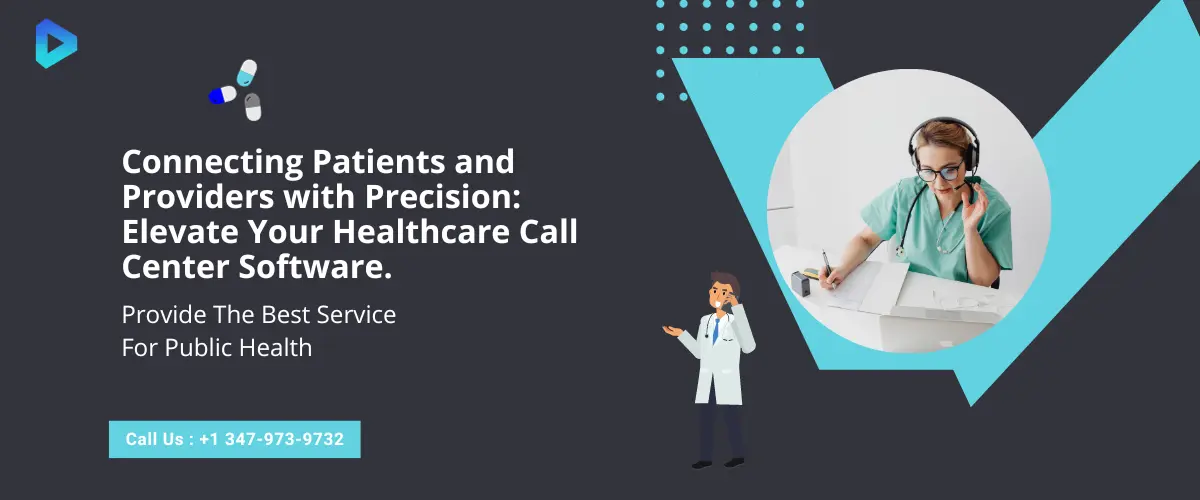
Call centers in healthcare are like communication hubs, connecting patients, doctors, and insurers. They help manage appointments, answer medical questions, and assist with billing and insurance. Healthcare Call centers reduce missed appointments by sending reminders, making it easier for patients to access care. They provide a friendly voice for patients to reach out to when they have questions about their health. Overall, they improve communication and support patients through their healthcare journey.
Specialized software is crucial for patient engagement in healthcare call centers because it simplifies and improves communication. It allows call center staff to efficiently schedule appointments, send reminders, and provide relevant health information. This software keeps patient data secure and ensures that important information reaches the right people promptly.
It also supports personalized interactions, making patients feel valued and well-informed, which can enhance their overall experience. Furthermore, it aids in monitoring patient health remotely, enabling timely interventions. By automating routine tasks and reducing the need for in-person interactions, this software makes healthcare operations more cost-effective.
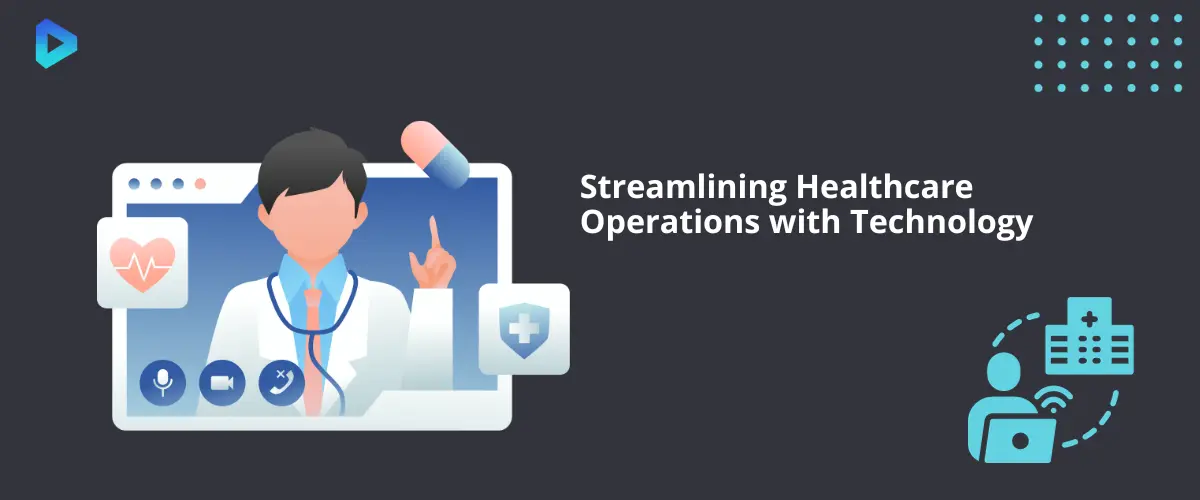
Healthcare call center software is a computer program used in medical facilities to facilitate communication among patients, healthcare providers, and insurers. Its key features include appointment scheduling, reminders, and secure patient information storage. This software helps with patient engagement by offering personalized interactions and enabling remote monitoring of patient health. The software's goals include simplifying healthcare communication, improving the patient experience, reducing missed appointments, and enhancing the security of patient data.
Healthcare call center software is distinct from standard call center solutions as it is tailored specifically for the healthcare industry by software developers. It focuses on things like scheduling appointments, sending reminders, and managing patient data securely. These features aren't as common in generic call center software. Healthcare call center software also puts a lot of emphasis on engaging with patients in a personalized way. It allows for remote monitoring of a patient's health, something you don't usually find in standard call center software. Healthcare providers use this specialized software to ensure they care for patients and keep their data safe.
Specialized healthcare call center software offers several advantages tailored to the unique needs of the healthcare industry. It enhances patient care by streamlining appointment scheduling, reducing missed appointments, and fostering personalized interactions that improve the overall patient experience. Features like appointment reminders, quick responses to patient questions, and secure data handling boost better communication and satisfaction. These elements help build trust and engagement with patients.
Specialized software makes it easier to monitor a patient's health remotely and provides helpful health education. This leads to improved results and demonstrates healthcare providers' commitment to their patients' wellness. This personalized approach to communication and patient care enhances satisfaction throughout the healthcare journey, rendering it a valuable tool for healthcare providers.
Healthcare providers can easily integrate specialized call center software into their existing healthcare systems, ensuring compatibility with Electronic Health Records (EHR) and other healthcare IT solutions. This integration includes establishing interfaces that enable call center software to communicate with EHR systems and other healthcare applications, facilitating the seamless exchange of patient data and information.
This level of integration guarantees consistent patient information across all platforms, reducing errors and improving the efficiency of healthcare operations. Moreover, this integration enables real-time access to patient records, streamlining communication between call center staff and healthcare providers, resulting in more effective and coordinated patient care. In essence, the software's flexibility and agreement with existing healthcare systems contribute to a cohesive and efficient healthcare environment while maintaining data accuracy and security.
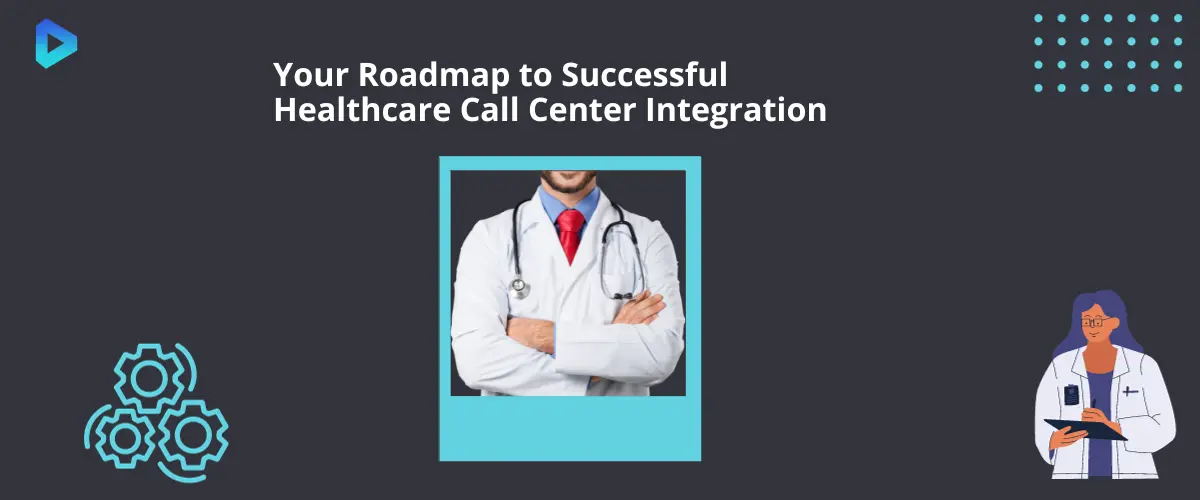
Training call center staff is essential for the successful adoption of specialized healthcare call center software. Proper training ensures that staff can maximize the software's potential in enhancing patient care and satisfaction. To achieve this, the organization should design comprehensive training programs that cover various aspects of the software's functionalities, from appointment scheduling to data security. Staff should learn how to use the software for personalizing patient interactions, efficient appointment management, and secure handling of sensitive patient data.
To ensure successful software adoption, consider conducting hands-on training sessions, providing ongoing support, and developing user-friendly training materials. Staff onboarding should emphasize practical, real-world scenarios, enabling call center employees to gain confidence and proficiency in using the software to its full capacity. This not only facilitates seamless software integration into existing healthcare systems but also ensures a smoother transition for staff, ultimately benefiting patient engagement and overall satisfaction.
The ability to customize specialized healthcare call center software to align with the unique needs of healthcare institutions is a key strength. It enables healthcare facilities to tailor the software to their specific requirements, whether it's adapting to different appointment scheduling workflows or including features for specialized services. This customization ensures that the software seamlessly integrates with the existing systems and procedures in place, optimizing its functionality to meet the institution's precise needs. Furthermore, the software's scalability is crucial as healthcare facilities grow. As institutions expand to serve more patients and offer additional services, the software can adapt and expand to accommodate the increased workload.
Whether it's adding more user licenses, increasing data storage capacity, or enhancing processing power, the software can scale with the facility's growth without disrupting operations. This flexibility not only ensures that the software remains efficient and responsive as the healthcare institution evolves, but it also contributes to the continued delivery of high-quality patient care in a rapidly changing healthcare landscape.
Call center software plays a pivotal role in ensuring compliance with healthcare regulations and patient data security. It incorporates features that maintain the privacy and security of patient information, aligning with regulatory standards like HIPAA. This includes secure data handling, access controls, and encryption measures to protect sensitive data from unauthorized access or breaches. The software also facilitates accurate and consistent patient record-keeping, helping healthcare facilities adhere to regulatory requirements.
Conversely, non-compliance with healthcare regulations can have severe consequences. It may result in legal penalties, fines, or sanctions against the healthcare institution. Furthermore, when there are data breaches and insufficient security for patient information, it can harm an institution's reputation and weaken patient trust. If patients are worried that their healthcare providers aren't doing enough to protect their personal health data, it can result in fewer patients seeking care and a drop in revenue, as they may be hesitant to seek medical help. Therefore, it is essential for healthcare institutions to prioritize compliance and data security through the use of call center software to avoid these significant repercussions.
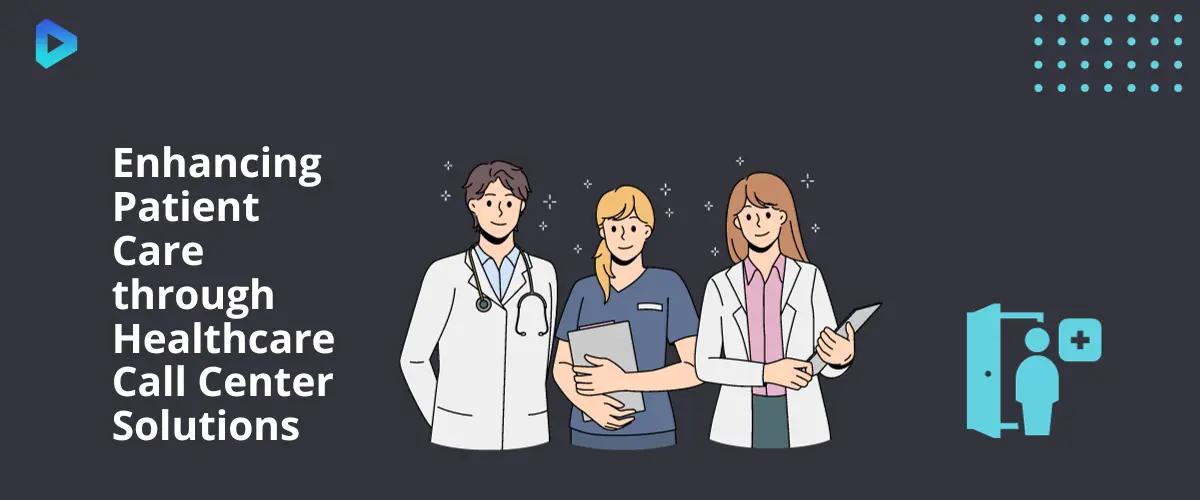
Personalized communication is a powerful driver of patient engagement in healthcare, with the potential to significantly impact the patient experience. It transcends generic interactions by tailoring communication to each patient's specific needs, demonstrating a commitment to individualized care. For example, consider a diabetic patient who receives a personalized message reminding them to monitor their blood sugar levels regularly. This not only ensures they stay on top of their health management but also conveys a sense of understanding and support for their unique healthcare requirements.
Moreover, simple gestures like sending a birthday greeting or well-wishing message exhibit a personal touch that can make patients feel valued and appreciated, forging a deeper and more meaningful patient-provider relationship. Personalization encompasses multiple touchpoints, such as sending customized appointment reminders, prescription refill notifications, or offering health tips directly relevant to a patient's medical condition. These tailored approaches not only enhance patient engagement but also lead to better adherence to medical advice and, ultimately, improved health outcomes, underscoring the profound impact of personalized communication in healthcare.
Specialized healthcare call center software plays a crucial role in streamlining appointment scheduling and follow-up procedures. It offers a centralized platform for efficiently managing appointment schedules, making it easier for patients to secure slots that suit their needs. Additionally, the software automates follow-up procedures, sending timely reminders and confirmations, reducing missed appointments, and minimizing the administrative burden on staff. This streamlined process not only improves patient access to care but also enhances healthcare efficiency.
The impact on patient satisfaction is significant. Patients experience less wait time, fewer scheduling errors, and better communication about their appointments. As a result, they experience higher levels of satisfaction, feeling that healthcare providers value their time and healthcare needs. Simultaneously, healthcare providers benefit from reduced no-show rates, which results in better resource allocation and increased patient care capacity. Overall, the streamlined appointment scheduling and follow-up procedures foster a more efficient healthcare system that not only benefits patients but also empowers healthcare facilities to provide higher-quality care to a larger number of individuals.
Specialized healthcare call center software excels in its ability to collect and analyze patient data for valuable insights. It functions as data storage, storing patient information securely and ensuring that data is consistently and accurately recorded. This data may encompass patient demographics, medical histories, appointment records, and communication preferences. The software can use analytics tools to identify trends, such as appointment attendance patterns or frequently asked patient questions. These insights can guide healthcare providers in making informed decisions about resource allocation and patient outreach strategies.
Healthcare providers can also use the collected data for proactive patient engagement. By recognizing trends or gaps in patient care, healthcare facilities can implement targeted outreach efforts. For instance, if data analysis reveals that a significant number of diabetic patients have missed their annual check-ups, the facility can proactively reach out to schedule appointments and provide reminders. This proactive approach not only improves patient adherence to care plans but also enhances the overall patient experience, demonstrating the healthcare provider's genuine investment in their well-being.
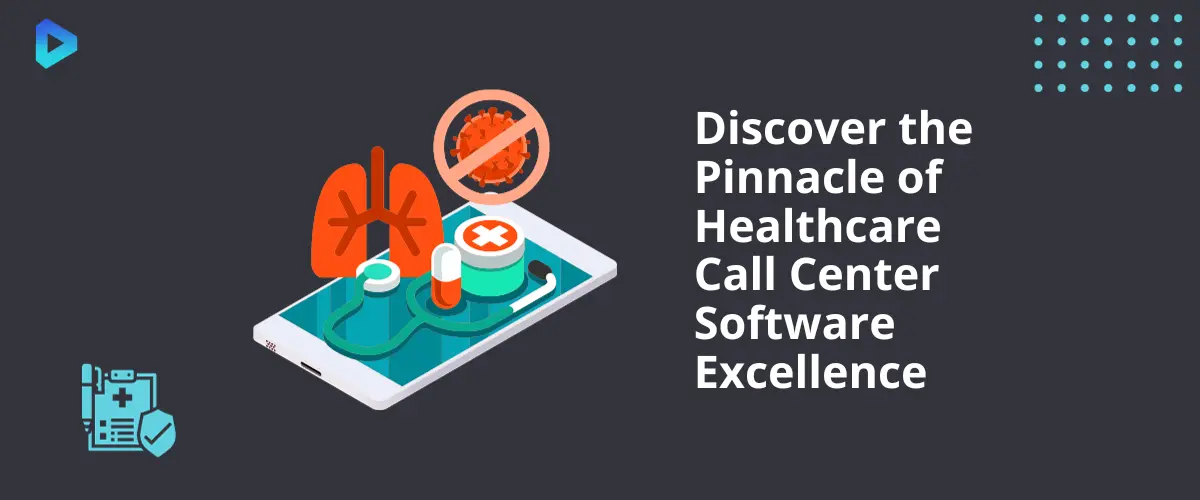
HealthLink Technologies, the pioneering healthcare call center software vendor, offers a comprehensive suite of user-friendly tools with unique features. Notably, their robust analytics module extracts valuable insights from patient data, aiding resource allocation and proactive patient engagement strategies. Furthermore, the software offers multi-channel communication options, allowing patients to choose their preferred method, be it phone, email, or SMS. Users frequently commend HealthLink for its adjustable features, emphasizing how it enhances patient communication and appointment management.
The software's analytics tools have garnered praise for optimizing healthcare operations, ultimately leading to improved patient outcomes. Users also highlight the software's personalized communication, resulting in higher patient satisfaction and reduced missed appointments. Overall, HealthLink Technologies distinguishes itself as a leader in the healthcare call center software industry, supported by these unique features and user feedback.
The second healthcare call center software vendor, HealthWave Solutions, enters the market as a notable player with a strong focus on improving patient engagement and healthcare facility management. Compared to the first vendor, HealthWave Solutions distinguishes itself with innovative telehealth capabilities and a focus on user-friendly interfaces. Both vendors share a commitment to patient engagement and data security. However, HealthWave Solutions distinguishes itself with its advanced telehealth features.
This allows patients to access care remotely, improving healthcare availability. Moreover, HealthWave gives importance to user-friendly interfaces, making it simpler for both patients and healthcare staff to navigate the software. User reviews often mention its user-friendly design and its effectiveness in improving communication between patients and healthcare providers. Pricing details vary depending on healthcare facility size and specific requirements, but they are generally competitive.
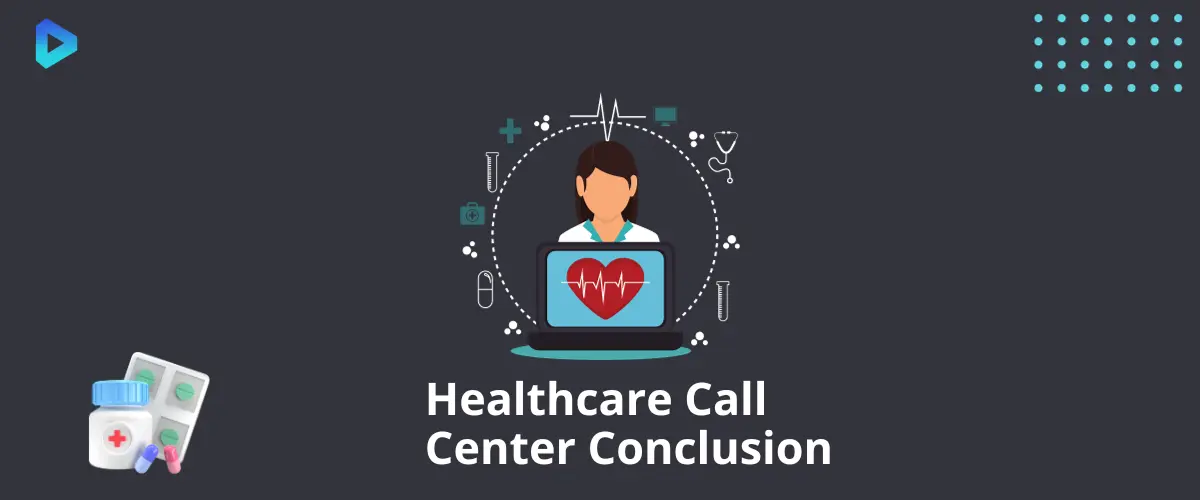
Healthcare call center software plays a pivotal role in patient engagement and satisfaction. It optimizes healthcare communication by providing a centralized platform for patients, healthcare providers, and insurers to efficiently interact. This streamlined communication leads to improved patient experiences and satisfaction, as patients feel valued and well-informed. Furthermore, the software streamlines appointment scheduling, reducing missed appointments, making care more convenient for patients, and improving healthcare efficiency.
It also collects and analyzes patient data to help healthcare providers make informed decisions, further enhancing the patient experience. Healthcare call center software simplifies communication, appointment scheduling, and data analysis. This ensures that patients are well-informed, appointments are easily accessible, and healthcare providers can deliver personalized and effective care. This ultimately leads to increased patient engagement and satisfaction.
Healthcare call center software is a tool that helps medical facilities manage communication, appointments, and patient data securely. It's necessary to streamline healthcare operations, improve patient engagement, and ensure data privacy, ultimately enhancing the patient experience.
Specialized software in healthcare call centers improves patient engagement through personalized interactions. It allows for customized appointment scheduling and secure management of patient data. These tailored approaches make patients feel valued and well-informed, leading to higher trust in the healthcare provider. This enhanced communication and patient satisfaction ultimately result in better patient engagement and adherence to medical advice.
Yes, organizations can customize healthcare call center software to fit specific healthcare settings. It can adapt to various healthcare environments, such as hospitals, clinics, or online healthcare practices, ensuring it aligns with the unique needs and workflows of each setting.
Healthcare call center software must comply with regulations like HIPAA (Health Insurance Mobility and Accountability Act) in the United States. HIPAA ensures the privacy and security of patient information. Compliance includes measures to safeguard patient data and provide secure communication, helping to protect patients' privacy and sensitive medical information.
Healthcare call center staff can effectively learn to use the software through hands-on training sessions and user-friendly training materials. Ongoing support and practical, real-world scenarios help staff become proficient. This training ensures that they can utilize the software to its full potential, enhancing patient care and communication.

Looking for IT consulting services? Great your search end here, because we are top rated Software, Web and Mobile App development company.
We have already successfully completed ~1000 projects. Take advantage of our all-round software application development services.
KNOW MORE ABOUT US